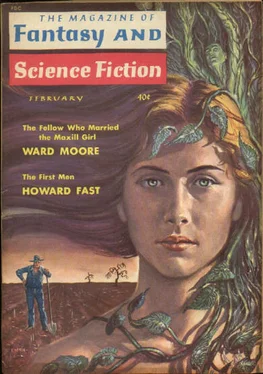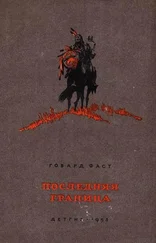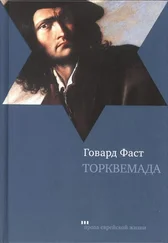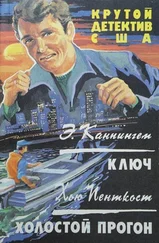Говард Фаст - The first men
Здесь есть возможность читать онлайн «Говард Фаст - The first men» весь текст электронной книги совершенно бесплатно (целиком полную версию без сокращений). В некоторых случаях можно слушать аудио, скачать через торрент в формате fb2 и присутствует краткое содержание. Год выпуска: 1960, Издательство: Fantasy House, Жанр: Социально-психологическая фантастика, на английском языке. Описание произведения, (предисловие) а так же отзывы посетителей доступны на портале библиотеки ЛибКат.
- Название:The first men
- Автор:
- Издательство:Fantasy House
- Жанр:
- Год:1960
- ISBN:нет данных
- Рейтинг книги:4 / 5. Голосов: 1
-
Избранное:Добавить в избранное
- Отзывы:
-
Ваша оценка:
- 80
- 1
- 2
- 3
- 4
- 5
The first men: краткое содержание, описание и аннотация
Предлагаем к чтению аннотацию, описание, краткое содержание или предисловие (зависит от того, что написал сам автор книги «The first men»). Если вы не нашли необходимую информацию о книге — напишите в комментариях, мы постараемся отыскать её.
The first men — читать онлайн бесплатно полную книгу (весь текст) целиком
Ниже представлен текст книги, разбитый по страницам. Система сохранения места последней прочитанной страницы, позволяет с удобством читать онлайн бесплатно книгу «The first men», без необходимости каждый раз заново искать на чём Вы остановились. Поставьте закладку, и сможете в любой момент перейти на страницу, на которой закончили чтение.
Интервал:
Закладка:
Howard Fast
The first men
By Airmail:
Calcutta, India
Nov. 4th, 1945
Mrs. Jean Arbalaid
Washington, D. C.
My dear sister:
I found it. I saw it with my own eyes, and thereby I am convinced that I have a useful purpose in life — overseas investigator for the anthropological whims of my sister. That, in any case, is better than boredom. I have no desire to return home; I will not go into any further explanations or reasons. I am neurotic, unsettled and adrift. I got my discharge in Karachi, as you know. I am very happy to be an ex-GI and a tourist, but it took me only a few weeks to become bored to distraction. So I was quite pleased to have a mission from you. The mission is completed.
It could have been more exciting. The plain fact of the matter is that the small Associated Press item you sent me was quite accurate in all of its details. The little village of Chunga is in Assam. I got there by 'plane, narrow gauge train and ox-cart — a fairly pleasant trip at this time of the year, with the back of the heat broken; and there I saw the child, who is now fourteen years old.
I am sure you know enough about India to realize that fourteen is very much an adult age for a girl in these parts — the majority of them are married by then. And there is no question about the age. I spoke at length to the mother and father, who identified the child by two very distinctive birthmarks. The identification was substantiated by relatives and other villagers — all of whom remembered the birthmarks. A circumstance not unusual or remarkable in these small villages.
The child was lost as an infant — at eight months, a common story, the parents working in the field, the child set down, and then the child gone. Whether it crawled at that age or not, I can't say; at any rate, it was a healthy, alert and curious infant. They all agree on that point.
How the child came to the wolves is something we will never know. Possibly a bitch who had lost her own cubs carried the infant off. That is the most likely story, isn't it? This is not lupus, the European variety, but pallipes, its local cousin, nevertheless a respectable animal in size and disposition, and not something to stumble over on a dark night. Eighteen days ago, when the child was found, the villagers had to kill five wolves to take her, and she herself fought like a devil out of hell. She had lived as a wolf for thirteen years.
Will the story of her life among the wolves ever emerge? I don't know. To all effects and purposes, she is a wolf. She cannot stand upright — the curvature of her spine being beyond correction. She runs on all fours and her knuckles are covered with heavy callus. They are trying to teach her to use her hands for grasping and holding, but so far unsuccessfully. Any clothes they dress her in, she tears off, and as yet she has not been able to grasp the meaning of speech, much less talk. The Indian anthropologist, Sumil Gojee, has been working with her for a week now, and he has little hope that any real communication will ever be possible. In our terms and by our measurements, she is a total idiot, an infantile imbecile, and it is likely that she will remain so for the rest of her life.
On the other hand, both Professor Gojee and Dr. Chalmers, a government health service man, who came up from Calcutta to examine the child, agree that there are no physical or hereditary elements to account for the child's mental condition, no malformation of the cranial area and no history of imbecilism in her background. Everyone in the village attests to the normalcy — indeed, alertness and brightness — of the infant; and Professor Gojee makes a point of the alertness and adaptability she must have required to survive for thirteen years among the wolves. The child responds excellently to reflex tests, and neurologically, she appears to be sound. She is strong — beyond the strength of a thirteen year old — wiry, quick in her movements, and possesses an uncanny sense of smell and hearing.
Professor Gojee has examined records of eighteen similar cases recorded in India over the past hundred years, and in every case, he says, the recovered child was an idiot in our terms — or a wolf in objective terms. He points out that it would be incorrect to call this child an idiot or an imbecile — any more than we would call a wolf an idiot or an imbecile. The child is a wolf, perhaps a very superior wolf, but a wolf nevertheless.
I am preparing a much fuller report on the whole business. Meanwhile, this letter contains the pertinent facts. As for money — I am very well heeled indeed, with eleven hundred dollars I won in a crap game. Take care of yourself and your brilliant husband and the public health service.
Love and kisses,
Harry
___________________________________________
By cable:
HARRY FELTON
HOTEL EMPIRE
CALCUTTA, INDIA
NOVEMBER 10, 1945
THIS IS NO WHIM, HARRY, BUT VERY SERIOUS INDEED. YOU DID NOBLY. SIMILAR CASE IN PRETORLA. GENERAL HOSPITAL, DR. FELIX VANOTT. WE HAVE MADE ALL ARRANGEMENTS WITH AIR TRANSPORT.
JEAN ARBALAID
___________________________________________
By Airmail
Pretoria, Union of South Africa
November 15, 1945
Mrs. Jean Arbalaid Washington, D. C.
My dear sister:
You are evidently a very big wheel, you and your husband, and I wish I knew what your current silly season adds up to. I suppose in due time you'll see fit to tell me. But in any case, your priorities command respect. A full colonel was bumped, and I was promptly whisked to South Africa, a beautiful country of pleasant climate and, I am sure, great promise.
I saw the child, who is still being kept in the General Hospital here, and I spent an evening with Dr. Vanott and a young and reasonably attractive Quaker lady, Miss Gloria Oland, an anthropologist working among the Bantu people for her Doctorate. So, you see, I will be able to provide a certain amount of background material — more as I develop my acquaintance with Miss Oland.
Superficially, this case is remarkably like the incident in Assam. There it was a girl of fourteen; here we have a Bantu boy of eleven. The girl was reared by the wolves; the boy, in this case, was reared by the baboons — and rescued from them by a White Hunter, name of Archway, strong, silent type, right out of Hemingway. Unfortunately, Archway has a nasty temper and doesn't like children, so when the boy understandably bit him, he whipped the child to within an inch of its life. "Tamed him," as he puts it.
At the hospital, however, the child has been receiving the best of care and reasonable if scientific affection. There is no way of tracing him back to his parents, for these Basutoland baboons are great travellers and there is no telling where they picked him up. His age is a medical guess, but reasonable. That he is of Bantu origin, there is no doubt. He is handsome, long-limbed, exceedingly strong, and with no indication of any cranial injury. But like the girl in Assam, he is — in our terms — an idiot and an imbecile.
That is to say, he is a baboon. His vocalization is that of a baboon. He differs from the girl in that he is able to use his hands to hold things and to examine things, and he has a more active curiosity; but that, I am assured by Miss Oland, is the difference between a wolf and a baboon.
He too has a permanent curvature of the spine; he goes on all fours as the baboons do, and the back of his fingers and hands are heavily callused. After tearing off his clothes the first time, he accepted them, but that too is a baboon trait. In this case, Miss Oland has hope for his learning at least rudimentary speech, but Dr. Vanott doubts that he ever will. Incidentally, I must take note that in those eighteen cases Professor Gojee referred to, there was no incidence of human speech being learned beyond its most basic elements.
Читать дальшеИнтервал:
Закладка:
Похожие книги на «The first men»
Представляем Вашему вниманию похожие книги на «The first men» списком для выбора. Мы отобрали схожую по названию и смыслу литературу в надежде предоставить читателям больше вариантов отыскать новые, интересные, ещё непрочитанные произведения.
Обсуждение, отзывы о книге «The first men» и просто собственные мнения читателей. Оставьте ваши комментарии, напишите, что Вы думаете о произведении, его смысле или главных героях. Укажите что конкретно понравилось, а что нет, и почему Вы так считаете.


![Говард Фаст - Муравейник Хеллстрома.[Херберт Ф. Муравейник Хеллстрома. Фаст Г. Рассказы]](/books/84780/govard-fast-muravejnik-hellstroma-herbert-f-mura-thumb.webp)






